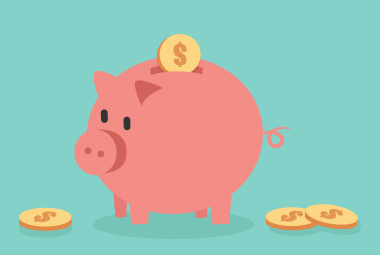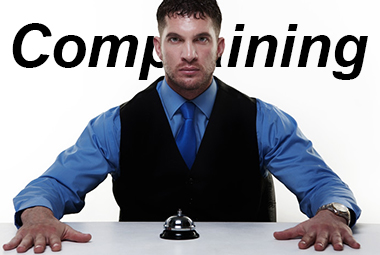Non-AP Cost Saving Tips
While AP’s play in casinos to make money, that doesn’t mean that non Advantage Players shouldn’t take advantage of cost saving opportunities. For this article, I’m going to present a few cost-saving travel tips that apply to casinos, as well as some others that can more generally be applied. If you have any you want to throw out there, please feel free to mention them in the comments!
Book Early and Often, ABC = Always Be Checking
If you’re aware of your travel dates well ahead of time, then the first tip I can give is not to book the first price that you see and also not to book via the first booking channel that you come across. While sites such as Hotels.com and Trivago often compare different hotels to one another in terms of rates (including casino hotels) there are many good reasons not to use these, “One stop shops,” exclusively.

The first reason is that some casinos will not comp or discount room rates based on play if you have booked through a third-party website. For those of you who want to have a host apply your play for comp purposes to a stay, the best piece of advice I can give is to determine whether or not they are even able to do that if you have booked through a third-party site. A simple call to the property should be sufficient to make that determination.
While it is a flimsy excuse, many casinos will point out that they have to pay booking fees and/or commissions to the third-party companies in question. While that is true, the fact of the matter remains that the casino hotels, and hotels in general, usually pay only a small percentage of the booking rate in terms of commissions. These can work one of two ways: Either the property pays a direct percentage (10% on the low end, 20% on the high end) to the third-party website, or the website itself charges a, “Booking fee,” which is essentially the commission.
When it comes to these, “Booking fees,” what one will notice is that the room cost after the booking fee has been applied ends up being the same as what the rack rate would have been if you’d booked directly through the property. While these sites may be convenient for being able to check the rates at multiple properties at the same time, they often do not offer the lowest rates.
Even in cases in which the third-party site does offer the lowest rate, most hotels (in general) are happy to match that rate if you point it out to them and call to book directly. This is advantageous because you will be able to get the lowest rate from all available sources, and will often have more liberal cancellation terms. Perhaps most importantly, since you are booking directly with the property, your play will then generally be able to be used to reduce your room cost at check-out or make the room free.
ABC Also = Always Be Cancelling
There are many people who consider it wise to try to book at the most opportune time to get the lowest rates. Generally speaking, they’ll try to track the prices at the desired property for a certain period of time, and then when a lower rate pops up compared to those they have seen, they’ll book it.
Here’s a piece of advice you won’t usually hear: Book the lowest rate that you can find right off the bat, provided you are able to cancel the reservation for free to a certain point. The majority of cancellation policies (excepting, ‘Special Event,’ dates) generally allow you to cancel the room with 24 hours notice. Some booking sites/properties even allow for same-day cancellation up to a certain time, typically 4:00p.m. or 6:00p.m..
If you pair the cancellation time with the philosophy of, “Always be Checking,” then you can have a reservation locked in at the first lowest rate you saw initially, (in case it never goes down, or worse yet, only goes up due to rooms getting filled) but you will also have the ability to cancel and rebook at a lower rate in case the rate goes down in the future. Furthermore, casinos will often offer, ‘Package Deals,’ on spas or on food on their websites even though the rate itself is either unchanged, or goes up only slightly.

When you factor in the value of what you might be getting, “For free,” with the package deal, the overall value of your booking might be better by cancelling and rebooking under the package, especially if the package includes something that you would be doing anyway. For instance, if the price of a day at the spa is over a hundred bucks, and you wanted to check out the spa anyway, then better to book a spa package if the overall stay is going to cost you something less than that.
Of course, if you play at a certain level, then it is important to make sure that the charges can still be taken off when you check-out (i.e. comped) on a package deal. Some casinos may have a policy that does not allow any comping for stays that have been booked under the package deal.
Once again, these tips do not apply only to casino visits, but can often be utilized for any hotel stay. They often prove the most useful, ironically enough, during special event times. The reason why is that a hotel may set prices expecting a certain occupancy predicated upon those prices, but if they fail to achieve that occupancy, might drop the rates the day of or closer to the date pretty substantially.
How often should you check? My answer is that you should check every couple of days all the way up to just before you check into the hotel provided the cancellation deadline has not expired. Provided you are within the cancellation policy, you can even rebook the new stay (if you want to make absolutely sure you’ll have a room) prior to even cancelling the old one. Just remember not to mix up your confirmation numbers and cancel the wrong stay!
Another tactic you can use is to book multiple hotels for the same date(s), but again, you want to make sure that you know the cancellation policies for each property so you do not fall afoul of those and end up paying for a room that you don’t use.
Unfortunately, the pictures of a room on a property’s website, or on a third-party website (which are usually the same pictures, anyway) tend to represent the room/property on its, “Best Day.” Furthermore, framing techniques are used to improve how the property looks. One example (of many) is hotel pools, pictures taken closer to the floor and going across the pool make the pool appear to be larger than it really is.
Most properties will allow you to take a look at the room before you check into it to make sure that you are happy with it, and this is especially relevant if you are still within the cancellation deadline. If you don’t like what you see, then you can often cancel the room online (or over the phone) and don’t even have to deal with the front desk agent who showed you the room again. Even if you do, though, that agent has no standing to give you any crap about cancelling the room if you are within the deadline.
One risky tactic that some people employ is to try to book multiple rooms and then cancel AFTER the deadline claiming not to be satisfied with the room. Personally, I consider such a tactic to be somewhat deceptive. If the property is going to honor its end of the deal by letting you cancel within the cancellation deadline, then you should honor your end by keeping the room (if it is after the deadline) unless you have a legitimate problem with it.
The tactic is also risky because many properties are not going to be inclined to let you cancel if it is after the deadline. When that happens, if you decide not to stay there, you’ll often be charged for the room which then gets rented to someone else, anyway. Remember, as soon as you turn your keys in at the front desk, or otherwise announce that you will not be using and/or are done with the room, the property is fully within its right to use the room however it sees fit. If that includes essentially renting it again, well, it’d be kind of dumb for the property not to, wouldn’t it?
Getting the Best Deal
Maybe straight up lying is not everyone’s forte, but for those of you who are as eager to save money as the property’s are to make it, sometimes it’s not a bad idea to, “Manufacture a deal.” Granted, you usually can’t do anything ridiculous like claim you saw a room with a $130/night rack rate on Hotels.com (or some other site) for $60, but you can often shave $20-$30 off of a price by claiming you saw it online at a particular price and hoping the front desk agent is too lazy or unconcerned to verify it.

When I worked at a hotel, I was actually the person who set the percentage off for the rates on the third-party websites, so I immediately knew what those sites were saying about the rates. However, you can often get lower rates than that just by making such a claim even if the hotel employee knows you’re lying. For example, if a third-party website got a 20% cut of anything booked through their channel, and the online rate at that site was $120, then am I better off insisting you book it through that channel if you claim the rate is $110 or booking it myself at $110?
Think about it: If I tell you to book it through the TPW, in addition to the fact that you might not do it, the hotel is only going to make $96 per night on that room. The last time I checked, and I am by no means an expert, $110 is more than $96, so I’ll happily accept your lie as truth and make the hotel $14 per night on that stay. You’re happy because you, “Got one over on me,” in your mind, and I’m happy because the hotel makes $56 more bucks on the four-night stay. In addition to that, since I am making an, “Exception,” I can load that exception with less favorable cancellation terms (or a one night non-refundable deposit) than you would have gotten booking at the TPW.
The hotel industry is one of the last few remaining in which there is still some room to haggle. The reason why is because both the guest and the hotel know that, “Fixed costs,” don’t change much from guest to guest, so the only real variable cost a hotel has is opportunity cost which comes from renting a room for less than you might have otherwise gotten, or pricing the rooms too high to sell.
Always Be Aware of the Downsides
One aspect of TPW’s that many people do not fully appreciate is that it is often up to the TPW whether or not you will get a refund if you are unsatisfied with your stay. While you are staying at a certain physical hotel, it is important to remember that your dealings are often going to be with the TPW if you have a problem with that stay.
One reason for this (on the hotel’s end) is actually legitimate. Many TPW’s will provide the hotel with a, “One-Shot,” credit card, which means that the card is authorized (by the TPW) to cover room costs and taxes to the penny. The result of that is, if you ask the hotel for a refund, you will often be categorically denied.
The problem is that the hotel is not going to refund YOUR credit card because that card is not the method of payment, and refunding YOUR card directly does nothing to prevent you from complaining to the TPW anyway. If I’m going to eat a complaint to either the TPW or to the franchise (when applicable) I’m certainly not going to do it after I have already issued you a refund, coupons or extra membership points. (Again, if applicable)
Instead, I’m going to explain that the TPW has actually charged your card, not the hotel, and any refund requests are going to have to go through them. If the guest chooses to do it, the guest will have to call the TPW, make the complaint known and then the TPW will have to contact the hotel themselves to explain the issue and request a refund.
I denied such requests about 90% of the time, when I worked in the hotel industry.
The reason for the denial was pretty simple, I didn’t expect that the guest would ever come back anyway, and because there is almost no reason (outside of a very legitimate issue) for me to authorize the refund. Theoretically, the TPW could still give you a refund if they think that it is warranted (they never will) but any such refund would not come out of the hotel’s coffers.
In those rare instances that we did a refund to the card of the TPW, the TPW would then refund the guest that amount. While I think that usually gets done pretty expediently, I did have some calls from guests griping that they never got their refund or that the refund took weeks to hit their card. Again, that has nothing to do with me, I can prove that I did, in fact, process the refund to the credit card of the TPW. (Though, technically, the hotel isn’t even supposed to provide that as the rate is supposed to be, “Suppressed,” meaning the rate the TPW pays)
Therefore, if you think that you might have a problem with the property, direct booking is the best means by which you can handle that. As previously stated, most properties will match any provable online rate in the first place, so there is no reason to use the TPW unless the cancellation policy is much more liberal.
ABC = Always Be Complaining
As someone who used to work in the hotel industry, I really hate to throw this one out there, (and I don’t use this tip) but generally, most hotels will issue some small percentage or dollar refund for just about any complaint you can think of. I don’t know that I would recommend this course of action if you can potentially get the room comped through your play, but if you are staying at a property at which you aren’t playing (or a hotel without a casino) then a complaint about virtually anything will generally get you something off.

This is perhaps the most true of franchise hotels. The truth of the matter is that franchise hotels have one fear and one fear only when it comes to guest complaints, and that fear is a complaint to the franchise. Several franchises have a policy in place known as, “First Call Resolution,” which means that if they cannot immediately get ahold of the property for whatever reason, then they can resolve the issue with the guests themselves.
When it comes to FCR, the franchise agents are unlikely to spend that much time going to bat for a hotel that does not directly employ them. The result is that the initial offer (which does get billed to the property by the franchise) is often going to be ridiculously high. Again, that’s the first offer, it’s not unheard of for franchises to eventually offer a full refund of one night’s stay.
As an interesting side note, franchises used to offer more than a full night free, but eventually finally got away from that after hotels asked a very common sense question: “If the stay was so bad, then why did the guest stay for multiple nights?” Another variant of the question is, “If the third night of the guest’s stay is the subject matter of the complaint, then why should they be refunded the first two nights when those were fine?”
Franchises also adjudicate hotels my means of what are called, “Quartiles,” which is based on a metric known as, “Complaints per Thousand,” meaning room nights. In other words, if the franchise receives six complaints about a hotel over one thousand rooms nights (a three night stay would be three room nights, even if it is the same occupant) than the Complaints Per Thousand score is, “Six.”
When a hotel drops into the, “Fourth Quartile,” which means that it has more complaints per thousand than other properties in that brand, or franchise, then, “First Call Resolution,” often begins to take place on every complaint about the hotel to the franchise without the hotel ever being contacted. Additionally, franchise agents are even less likely to go to bat for a hotel in the fourth quartile and will often open up negotiations with 50% off of a room night with the second offer being a full refund.
Being in the fourth quartile also comes with other downsides, as well. The first downside is that many franchises will inspect fourth quartile hotels more often and implement a plan to get the hotels out of the fourth quartile, even though, by definition, 25% of all of a franchise’s hotels are going to be in the fourth quartile. These plans do not come for free with additional inspections needing to be paid for by the hotel as well as the fact that there may come penalties for being in the fourth quartile to begin with, in terms of fixed additional charges. One example is an extra sum of money that is added to the refund (that the guest doesn’t see) each time the franchise deals with a complaint against the hotel. The highest such charge I have ever heard of is an additional $25, per incident.
When it comes to complaints, the best way (again, if legitimate) to handle a complaint is either with the hotel directly or by going to the franchise. The guest doing the complaining may also threaten to go to the franchise, but that’s kind of a gambit. If the property is in great standing with the franchise, then the complaint is just going to come back to the property anyway, and the property is not going to offer you very much. You might have done better by simply not making the threat. Generally, if you’re going to go to the franchise, then just go to the franchise.
Always Be Complaining...Except
There is really no reason to threaten anyone at the property with going to the BBB. It’s a pretty open secret that BBB ratings are largely bought and paid for and, perhaps most importantly, the BBB has no real teeth to effectuate a resolution of any kind. It’s true that the BBB can trash the property on their website, but many properties don’t care about that at all and consider the BBB nothing more than a nuisance to occasionally be dealt with.
Furthermore, if you actually did go to the BBB (and this is speaking for me, personally) I would basically use every single minute of the time I was allotted before sending a response. At that point, the responses also MUST go through the BBB on both ends (the BBB does not even want the hotel to contact the guest directly, anymore) so that gives me the ability to drag out a partial refund for two or three months (spite alone) when you’d have likely gotten the same refund by just dealing with me directly. In addition to that, rather than making a simple phone call to me, you also get to waste a bunch of your time sending E-Mails back and forth to the BBB as well as written responses to what I send them.
Hey, I have to be at the hotel anyway, you’re the one wasting YOUR life on this.
The best part is, no matter how long the hotel drags it out, (if they are within the time parameters) as long as some resolution is accepted by the guest, then it is considered a resolved complaint that does not hurt the property’s BBB standing. Furthermore, if the BBB deems an offered resolution, “Acceptable,” and the guest does not respond or does not accept the resolution, then that will also cause the complaint to be closed.
Let’s talk about credit card chargebacks:
The only time that you should request a credit card chargeback is either if the issue at hand is legitimately a financial one, or alternatively, if you have exhausted every means available to you (including contacting the franchise, if applicable) and you believe you have still been somehow defrauded or not given what was advertised.
This is important because chargebacks are a very serious matter and many hotels will do everything they can to get those reversed. While it is a good way to get refunded on a reservation that you cancelled after the deadline if you booked over the phone or online, (the hotel does not have anything signed by you) the hotel will even prevail in some of those cases.

Generally speaking, the hotel is going to prevail if you instigate a chargeback due to some kind of room complaint. Furthermore, if the property has issued you any kind of a refund already (or the franchise) and you signed the folio, (or acknowledged it via E-Mail or recorded phone call) then you have no grounds to request a chargeback as the matter is considered resolved!
That is also another reason NOT to give the property any advance notice if you plan to instigate a chargeback. The first thing that I would do is say something like, “Okay, well, I do want to give you a ten dollar partial refund out of good faith, so I’ll send you an E-Mail with that folio, please respond to confirm you have received it.” The guest responds to the E-Mail, and as far as the credit card company is concerned, the guest accepted the property’s resolution to the complaint already!
Another aspect of chargebacks is, much like with the BBB, the hotel is given a substantial amount of time (generally thirty days initially and then fifteen days for all further communications) to respond. In the meantime, you’re going to be dealing with the credit card company by phone or E-Mail several times over the next couple of months as they ask you to answer to the property’s side of the story. Even if you do prevail in the chargeback, they’re not generally going to give you more than one night (if it can be proven you stayed in the room) so you’re not doing much better than what I’d have given you on my own volition.
One other thing about chargebacks is that they can spill into litigation if the hotel thinks that you are trying to deliberately perpetrate fraud against them. This is an extreme example, but on one occasion, we had two gentleman staying (copies of the credit card, their driver’s licenses, company name, and all that) for two weeks and everything seemed fine. About a month later, we got a chargeback notification on the grounds that the company’s credit card had been stolen and that the stay was not authorized.
We tried to reason with the credit card company and submitted all of the information we had about it, including signed folios and copies of the credit cards and matching ID’s. For whatever reason, the company just said, “Our credit card information was compromised and any charges after xx/xx/xx were not authorized by the company.” They literally responded with only that three times and the credit card company found in their favor.
Keep in mind, we’re not talking about two nights of room revenues, we’re talking two WEEKS, over two grand in revenue when we were sold out and would have rented the rooms anyway, so we sued the company. In addition to naming the company in the lawsuit, it was also possible that the employees were not actually employees anymore and had fraudulently used the card, so we named them in the small claims case, as well.
Again, once it goes to chargeback, we are no longer supposed to contact the company directly...and they didn’t decide to actually READ what we sent when responding to the chargeback, so suing was our only recourse. The company responded immediately, gave us a new credit card to be charged, covered our filing costs and we dropped the complaint. Technically, we just wanted the money we were entitled to, (at least, I did, the owner of the hotel was actually pissed at me for not trying to get 150% or double) but it took all of that to get it.
We’ve strayed a little away from the topic, here, but I think that’s an interesting story about how a simple hotel stay can get way out of hand. Let’s bring it back, though:
The long and short of the matter is that the most effective complaint is going to be made, at least first, at the property level. If they don’t make what you deem to be an acceptable offer, then threaten to call the franchise or just call the franchise. It’s also important to remember that the most the majority of franchises will give you is a refund of one night, so if you’re asking for more than that, you’re being ridiculous. The only exception is if you did not like the property, and attempted to check out, but the property refused to cancel the rest of your stay. Try to get the property to sign something stating that is what they are doing if that’s the case, though.
Analyze Packages
Many people don’t want to deal with the hassle of breaking down packages to determine whether or not they are getting good value, and instead, put an emphasis on getting their vacations booked quickly. While that may not always come back to bite them in the pocketbook, it usually does. People seem to think that packages offer a good deal, hell, the website even says what you are saving right there as you are booking it...has to be true, right?

Yes and no.
It has to be true in the sense that the savings has to reflect how much less you are spending compared to booking each of those items directly at the listed price. What that means is, if you take the hotel’s rack rate, the airline’s ticket price and the rent-a-car’s base cost and add them together; then it will be greater than the price at which you are booking these things.
The first major bite that gets taken out of your wallet is the fact that these packages are usually offered on a, “Percentage off,” basis from the hotel, the car rental company and the airline. This might not be a flat percentage across-the-board, (the hotel might be discounted more than the flight, for example, but that’s all backend stuff you wouldn’t know about because the TPW charges you and then pays the individual companies) but each business is generally offering a percentage off to be included in the package.
The point is that these three specific companies are giving specific percentages off of their, “Standard Rates,” which should be paid by nobody, ever. If you book these things individually with special deals, often found by way of going directly to the websites of the individual companies, (again, they’re not paying commission now) then you will often find yourself paying less, in sum, then the, “Special Package,” rate.
Furthermore, the packages that you are offered are only by companies participating together in the package. You might find a substantially similar hotel that is so much cheaper for the dates in question that just the savings on the hotel will save you money, overall. A different rental car company may also be offering a special that brings your total cost to less than that of the package. The same thing applies when it comes to potentially flying a different airline, or flying at a different time.
How much will you save by looking at the items individually? There is no way to know as it is going to vary from trip-to-trip, occasionally, the package might even be the best deal available to you. The point is that you don’t know unless you actually take the time to look, so you have to ask yourself a very fundamental question, “Do I want to try to save money, or not?”
Always Be Counting
There’s a reason to, “Always Be Counting,” and that’s because everything counts. Even if you think most of your stay and room charges are going to be comped, unless you know all of them are, then you should still be trying to minimize those expenses along the way.
For example, if you have a coupon for a casino buffet, restaurant or other outlet but think, “No, I’m not going to use that, this is probably getting comped anyway,” then you’re not looking at it correctly. If the coupon is an easy way to take off from the charges that need to be comped in the first place, then you should use it. Generally speaking, the final bill is what gets applied to your room, so anything you can do to reduce the final bill works in your favor and increases the likelihood that your stay will be fully comped.
Always Be Calling
This ties in somewhat with previous points, but another example of a cost-saving measure to always be calling casinos in advance to see if the hosts can do anything for you.
While many casinos may not take, “Front money,” as seriously as they may have at one time (just because you wire it to them doesn’t necessarily mean you’re going to expose it, or play the games that you claim you’re going to) there are some casinos that will toss you some comps based upon front money.
Furthermore, there really is no reason to always be loyal to a specific property. It’s always possible that a different property will be able to give you a better deal, and that better deal can often be based on any provable play that you have at your, “Usual,” property. Additionally, if you have a good relationship with your host at one casino, but are going to a non-competing (read: out of area) casino, then your host at the first casino may be willing to make a call to a different host on your behalf. This is especially true with casinos that are in the same family and is something that CET properties essentially do automatically.
Furthermore, don’t underestimate what your front money or play history can get you when visiting a property. It’s a cop-out to say, “My action isn’t that great,” and to decide not to make a call to a host ahead of time as a result. That’s not advisable, it’s important to remember that the answer isn’t, ‘No,’ until you actually get told no, and a no at some properties will be a yes at others.
Even if nothing you do is going to get any front offers extended to you, being polite and courteous with the host will often get you good information of varying specificity. For example, you might be able to get a general idea of the sort of coin-in that you would have to play in order to get your RFB comped off on the backend. While playing for comps is not a good idea unless you are playing at an advantage (and have the appropriate bankroll) anyway, it is definitely good to have an idea what a certain property will give you for what would be your usual level of play.
Finally, ‘No,’ today does not always mean a, ‘No,’ tomorrow. The laws of supply-and-demand do not suspend themselves for the casino industry, so when talking about necessarily play or front money, if the casino expects to be extremely busy on your travel dates anyway, you might not be considered a highly desirable customer. However, if you are travelling during a time that the casino does not expect to be very busy, then your value as a customer can rise substantially.
Always Be Comping (Yourself)
When you are closing out a stay at the casino, many hosts will take any players club points that you may have accrued and apply them to your bill, “Zeroing out,” before putting on any discretionary comps. If you would have gotten your entire bill comped anyway, then those points for which you have put coin-in are essentially being wasted.
In many cases, the points could have been converted into Free Play, which is often going to have a better Expected Value than the value of the comps that you are getting. One exception is if the comps are taken off on a dollar for dollar basis, and there are no 100%+ machines at the casino, but again, your points might be being applied to charges that would have been comped off a discretionary basis anyway.
Always Be Consistent
One of the biggest errors a recreational player can make is by forgetting that many casinos base comps and mail off of a concept known as, “Average Daily Theoretical,” which simply refers to how much the casino figures your Expected Loss is per day. Sometimes, it’s just based on overall coin-in and the game played, but that essentially ends up effectively being similar to ADT.

When players do not pay enough attention to this fact,, they may end up having a weak playing day that pulls that average way down. Disregarding ADT, let’s just look at average coin-in. If a player runs $10,000 coin-in for three days, then the average daily coin-in, obviously, is $10,000. However, if a player switches hotels and then comes back to the original property and puts only $2,000 coin-in, then the average coin-in per day has dropped to $8,000. Many of the cutoffs, especially for mail offers, go on a tier-like structure, so that $2,000 coin-in difference (on average) could end up costing you hundreds in value in both Free Play and comps.
Some casinos will not count the day that you check out against you, especially if you have a host, but it is very important to ask the host whether or not your play on that day is considered even though you are not actually staying that night.
Conclusion
Hopefully these tips will help you save money next time you are planning a trip to the casino, or a trip in general, for those tips that apply just about anywhere. If you have any to add, then please do so in the comments, especially if they concern an area that has not been mentioned.
Comments
I'd say don't smoke while at a casino, even if you smoke. I've stopped at the casino and can tell it makes a difference, but it's hard to explain. If you ever notice someone tilting losing more than they want, they're chain smoking while doing it. I just think the smoking enables problem gambling, pacifies the feelings of a harsh reality.Maybe the subconscious feels if you're doing one stupid thing, might as well do a few.
Maybe the cigarettes are depleting vitamins such as potassium, causing your brain to function less optimally, just doesn't seem to be the same even sucking on one nicotine lozenge after another.
I guess for me smoking just somehow increases my appetite for risk taking and excuse making, just like drinking alcohol.
methinks onm is a little focused on tobacco these days
Brandon, good article but I think you need to do a word count sometimes and do some splicing - just saying
ONM,
It might be something along those lines, probably just because smoking mellows out and relaxes the smoker, in general.
OG,
Yeah, I really could have made this a two-part thing. Thanks for the compliment, otherwise!



